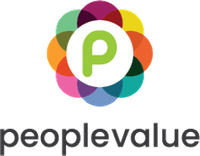Ways to use recognition to develop an organisational culture that underpins the employee experience

To build and maintain a happy, motivated and engaged workforce, it’s essential that businesses develop a strong organisational culture that keeps the employee experience front of mind at all times.
Reward and recognition has long been recognised as a valuable tool that not only drives employee engagement, but strengthens culture and shapes the employee experience. We have seen over the past year just how critical reward and recognition is, however, it’s about far more than just delivering ad-hoc rewards.
To create a culture that supports and strengthens your employee experience, you need to, as always, leverage technology and take a strategic approach to get the most out of your programme and optimise employee engagement.
The ingredients for a strong culture and good employee experience
We’ve identified four ingredients that together make a strong organisational culture, aligned to the employee experience:
1. Visibility and employee voice: employees feel seen and heard as individuals by their employer.
2. Teamwork and peer-to-peer support: employees have good social connections with their colleagues and feel a sense of mutual support, respect and appreciation.
3. Responsiveness and trust: employees’ trust that their actions and feedback will be quickly recognised and acted upon in a timely manner.
4. Purpose and meaning: employees understand the bigger picture, their goals and the ‘why’ behind what they do.
Looking at these four areas, we can establish the ways in which you can optimise your reward and recognition programme to strengthen your culture and the employee experience.
1. Visibility and employee voice – social recognition
To deliver a fulfilling employee experience that is conducive to employee engagement, it’s essential that every employee in your business feels seen and heard, whether they work from home, on-site, or split their time between the two. Having an individual identity and regular opportunities to use their voice will make your employees feel valued, rather than just cogs in a machine. It’s also a basic human need, as established by Maslow’s Hierarchy of Needs.
Through your reward and recognition programme, you can address this by introducing social recognition – which is where instances of recognition are shared to a communal platform. Having the opportunity to have their name ‘up in lights’ elevates employees’ visibility within your business. They get their moment in the spotlight and other employees can see the great work they’ve done.
On top of that, some reward and recognition platforms have the capacity for employees to have their own profiles where they can add their own photo and bio. This again gives employees the opportunity to establish an identity through your reward and recognition platform so that they feel like a key part of your team.
2. Teamwork and peer support – peer-to-peer recognition
As has been so widely discussed over the past year, social wellbeing plays a huge role in employees’ overall happiness and engagement at work. It therefore comes as no surprise that having respect and support from colleagues is key to the employee experience. It’s the role of employers to create opportunities for employees to connect with each other and build strong relationships with their peers.
By introducing peer-to-peer recognition, you’ll give your employees the opportunity to demonstrate their appreciation, respect and support of one another. Not only is this an easy and powerful way of opening up lines of communication between departments, but it also helps build a culture of recognition in which employees receive regular positive feedback from their colleagues.
This tool can seamlessly integrate with your existing reward and recognition activities and help make recognition part of everyday life, thus supporting your culture and the employee experience.
3. Responsiveness and trust – automation and manager self-service awards
In today’s culture of convenience, where almost everything is on demand, we’ve naturally become accustomed to things being delivered quickly. This expectation of responsiveness has also permeated the workplace and is critical to the employee experience and building a culture of trust.
For example, if an employee has feedback or needs support, they expect to get a quick response. If there’s a slow process and lots of delays, the result is not only a lacklustre employee experience, but employees will lose trust in their employer. This, naturally, will have an impact on levels of engagement.
Looking at this through the lens of reward and recognition, responsiveness and trust can easily be supported. Timing is vital. If you say you will deliver a reward and then it doesn’t happen right away, you compromise your employees’ trust in you. You therefore need to capitalise on the magic moments where rewards and recognition have the most impact.
To do this, automating your rewards where it’s possible is key. Whether it’s for Long Service Awards, birthday awards or any other types of recognition for specific milestones, automating the process optimises responsiveness and creates a sense of trust. By doing this, your employees will trust that they will receive a reward on their birthday ever year, for example.
Where automation isn’t possible, some platforms have valuable features where managers can easily select a reward and send it to an employee. That way, they can reward specific achievements or acknowledge life events as and when they happen. No delays. By incorporating these features into your reward and recognition programme, you’ll build trust, strengthen your culture and improve the overall employee experience.
4. Purpose and meaning – reward and recognition tailored to corporate values
For your employees to feel engaged, inspired and fulfilled at work, they need to have a sense of purpose and meaning behind their day-to-day tasks. Without it, they can quickly become disconnected, demotivated and disengaged. Reminding your employees of their purpose is essential to maintain a strong culture and should be a key part of the employee experience. Your reward and recognition programme can play a valuable role in supporting this.
By tailoring your programme to your corporate values, your employees will be regularly reminded of the behaviours you expect them to demonstrate. Being recognised and seeing their colleagues being recognised whenever they demonstrate one of your values, will reinforce your employees’ sense of purpose and deepen their connection and alignment to your culture. As a result, your culture will be stronger, and you’ll create a fulfilling employee experience as your team will have clear goals to work towards every day.
Final thoughts
Reward and recognition continues to play a pivotal role in shaping the employee experience, supporting organisational culture and driving employee engagement. With so many workforces distributed across different locations, leveraging the best technology to power your reward and recognition programme is key.
By automating rewards, simplifying the reward delivery process, introducing social recognition, peer-to-peer recognition and aligning your scheme to your values, you’ll help build a culture whereby your employees’ are valued and supported at every stage of their journey with you.
This article is provided by peoplevalue.
In partnership with peoplevalue – The Employee Engagement Company
We are a leading provider of employee reward&recognition, benefits delivery&wellbeing solutions.







